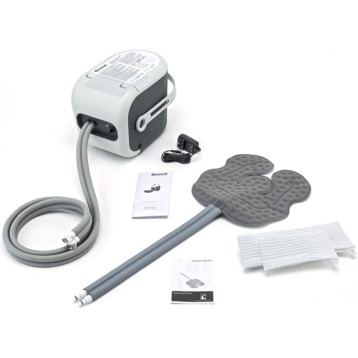|
TRAIL (TNF-related apoptosis-inducing ligand) is a tumor necrosis factor. It is a molecule that promotes cell death, which is naturally produced by the body’s immune system. This cancer-targeting molecule limits a tumor from spreading by binding to a specialized receptor on the tumor’s surface. However, cancer patients often have suppressed immunity and their TRAIL is not produced in levels high enough to suppress tumors. TRAIL-based cancer therapies are currently being tested in laboratory trials and in clinical trials.
A team of scientists led by Wafik S. El-Deiry, MD, PhD, Professor of Medicine, Genetics, and Pharmacology at the University of Pennsylvania School of Medicine and Co-Leader of the Radiation Biology Program for the Abramson Cancer Center at Penn, recently demonstrated for the first time a link between the TRAIL’s receptor (a TRAIL-binding protein) and cancer susceptibility. In addition, the scientists found a connection between inflammation and cancer susceptibility.
In the framework of the research, genetically engineered mice, without the TRAIL receptor on their cells, were challenged with a chemical carcinogen (an agent involved in the promotion of cancer) or radiation. The scientists also bred TRAIL receptor knock-out mice with mice that were genetically engineered to get B-cell lymphomas that metastasize to the liver and then tested their offspring. In both cases, the mice lacking TRAIL receptors developed more tumors in their livers, and in some cases in other organs, than the healthy control group mice (which had TRAIL receptors). “This is the first direct in vivo evidence that loss of the tumor death-inducing TRAIL receptor confers cancer susceptibility,” says El-Deiry.
Intact TRAIL and its receptor decrease the influx of inflammatory cells and molecules that can lead to cancer. El-Deiry is also working on understanding the connection between inflammation and cancer, with respect to the TRAIL pathway. In the abovementioned study, the irradiated mice that did not have the TRAIL receptor developed the inflammatory response of chronic pneumonia, in addition to tumors, indicating that cancer and inflammation are linked via TRAIL. Inflammation is a common, late and serious side-effect of radiation treatment and this study provides a new model of the involvement of TRAIL pathway deficiency in the chronic toxicity of radiation therapy. El-Deiry’s team is now trying to find inflammatory molecules within tumor tissue, so that they may improve their understanding of how cancer and inflammation are linked.
“Our work with TRAIL and its receptor in mouse models represents a new way to look at cancer susceptibility and its potential therapy in humans, as well as new ways to decrease debilitating radiation side-effects experienced by cancer patients,” says El-Deiry.
A comprehensive TFOT article dealing with new methods of exploiting virtues of our immune system for cancer therapy was recently published and is available here.
The TRAIL research press release of the University of Pennsylvania Health System can be found here.











